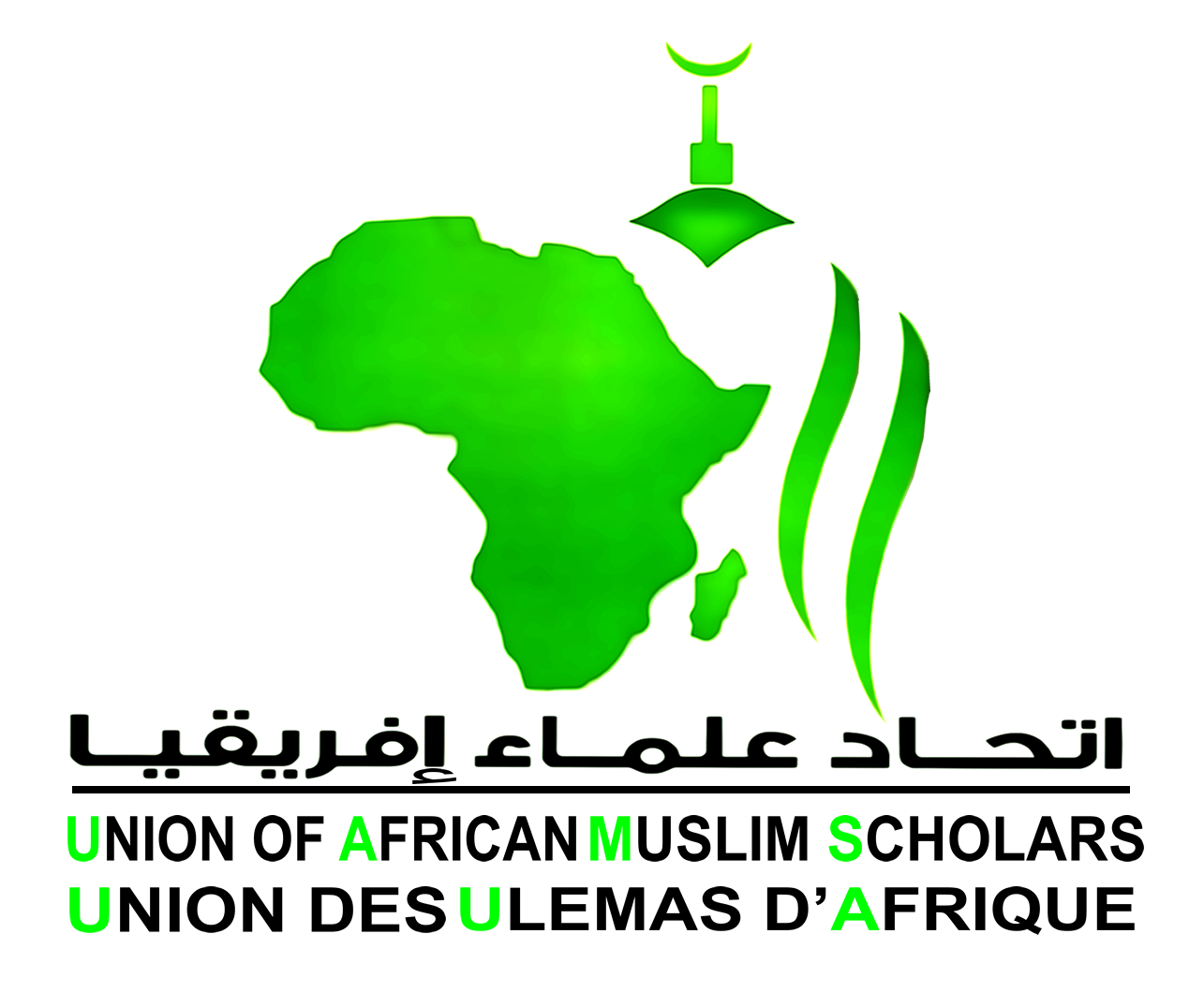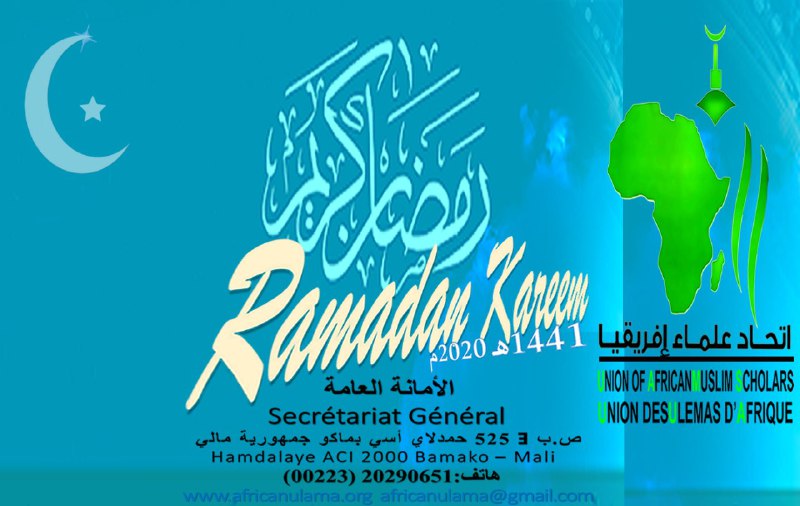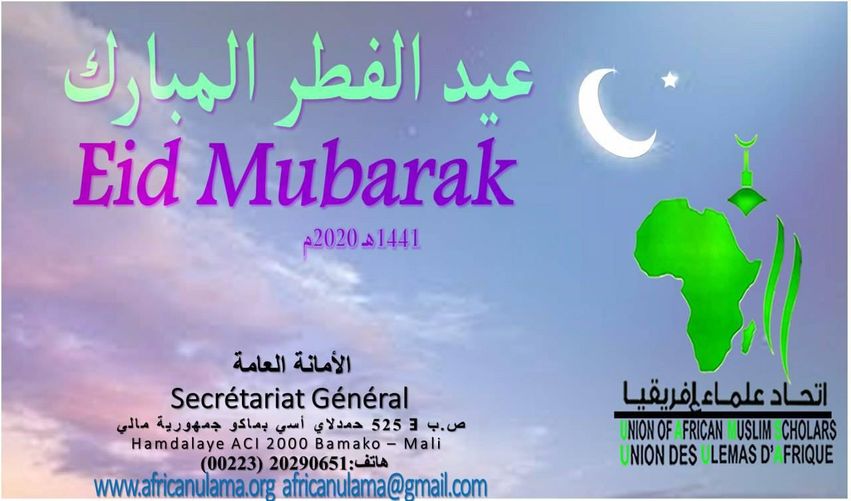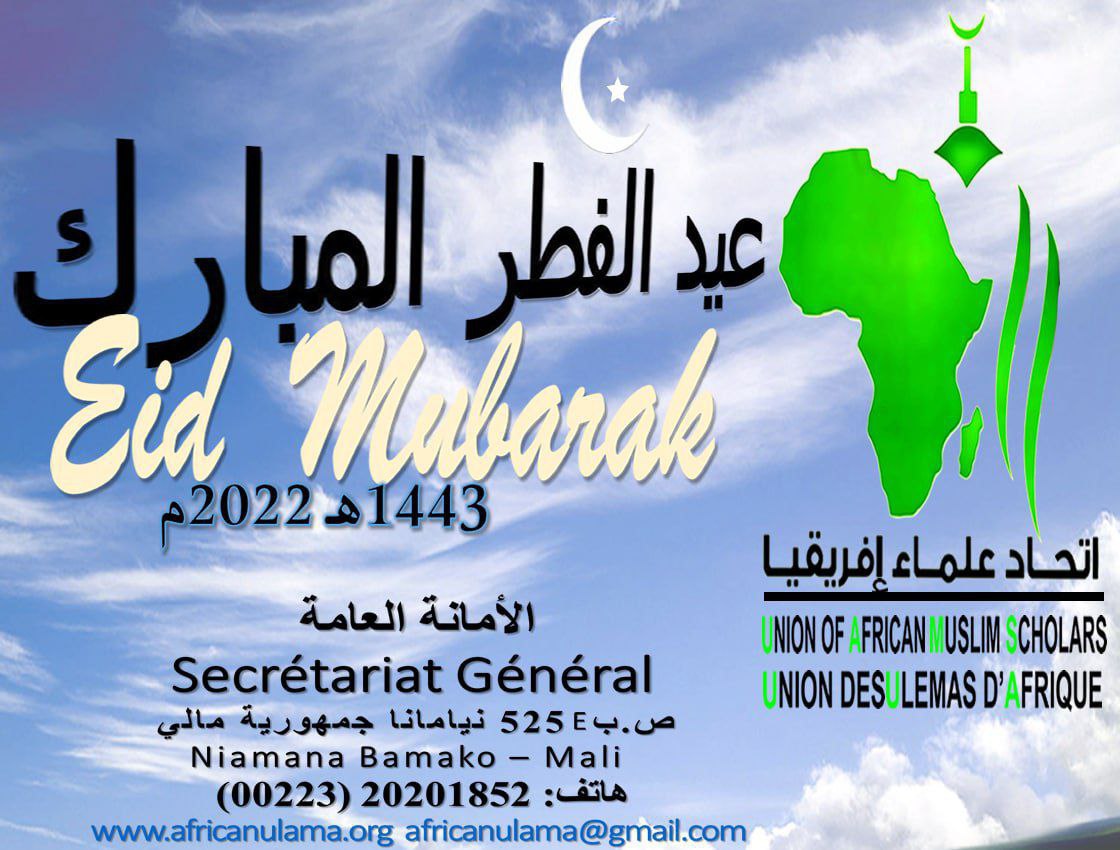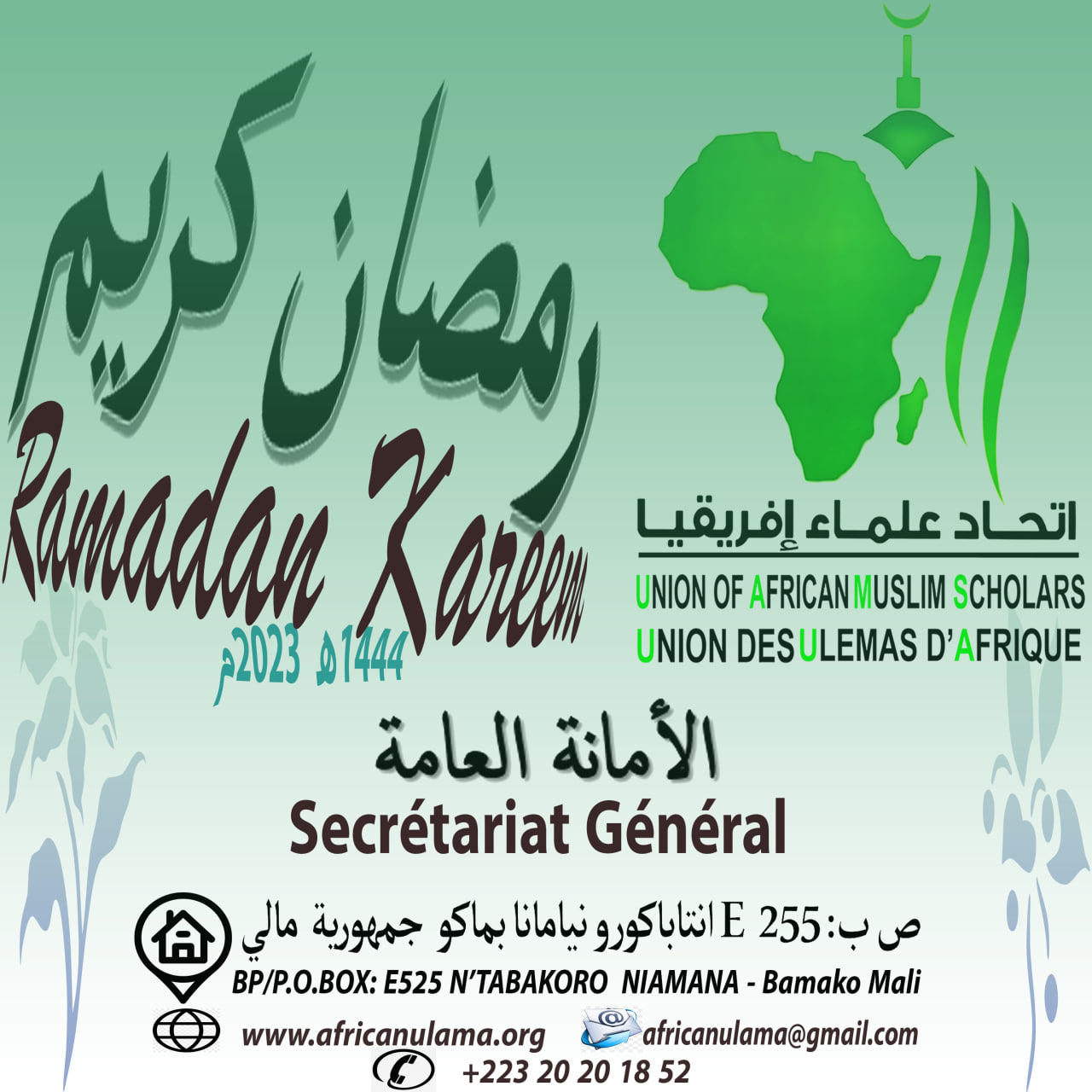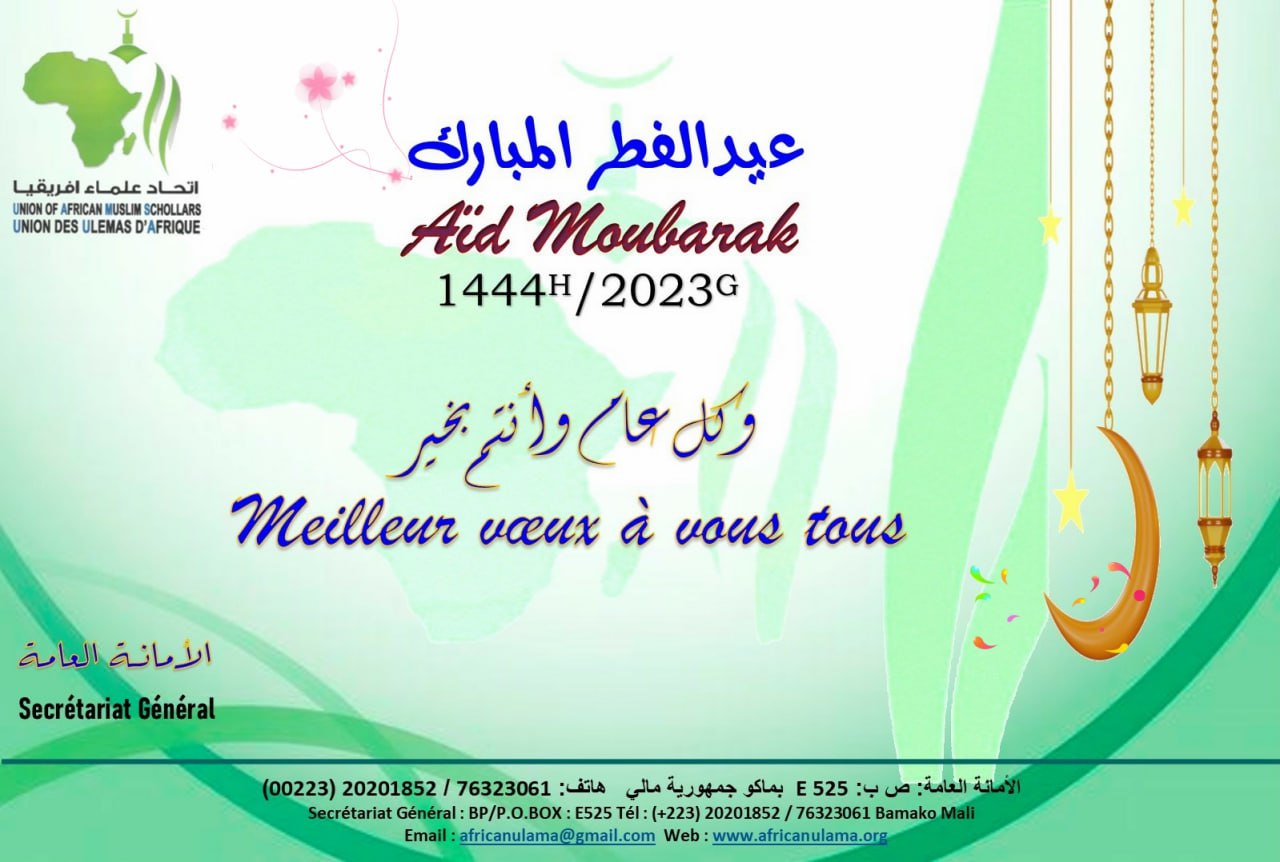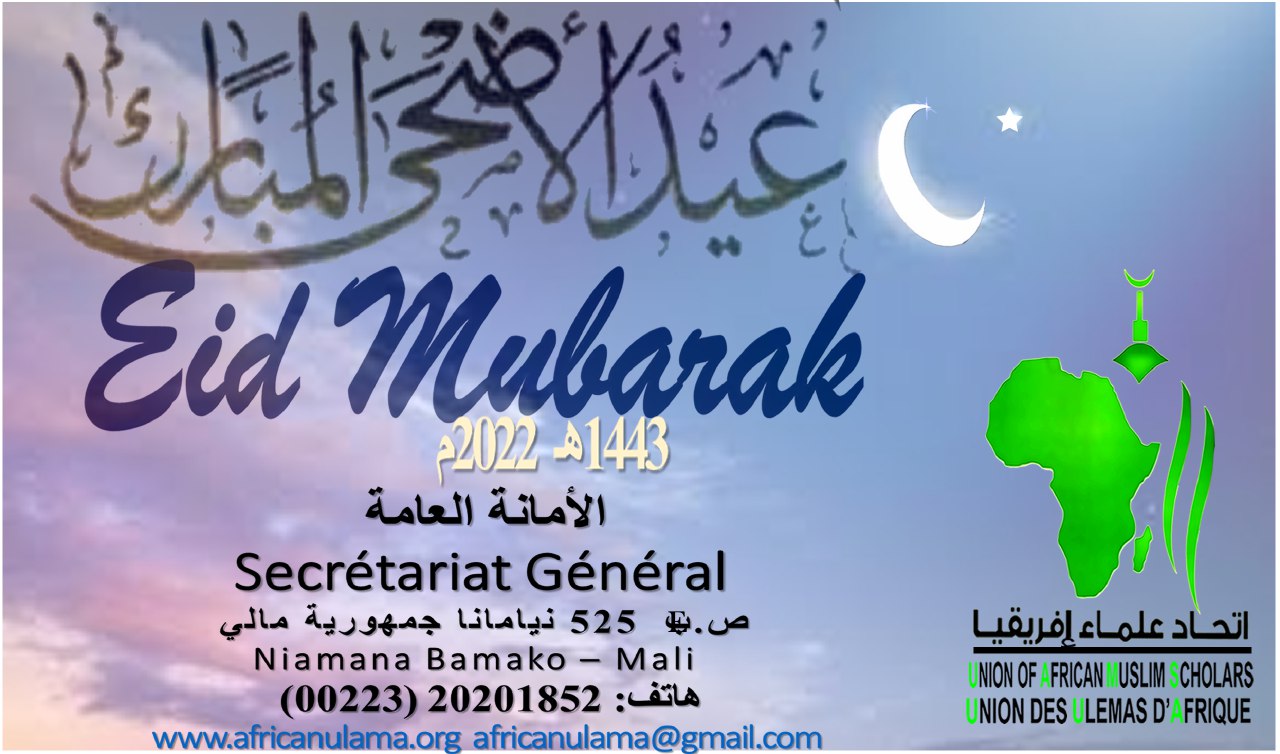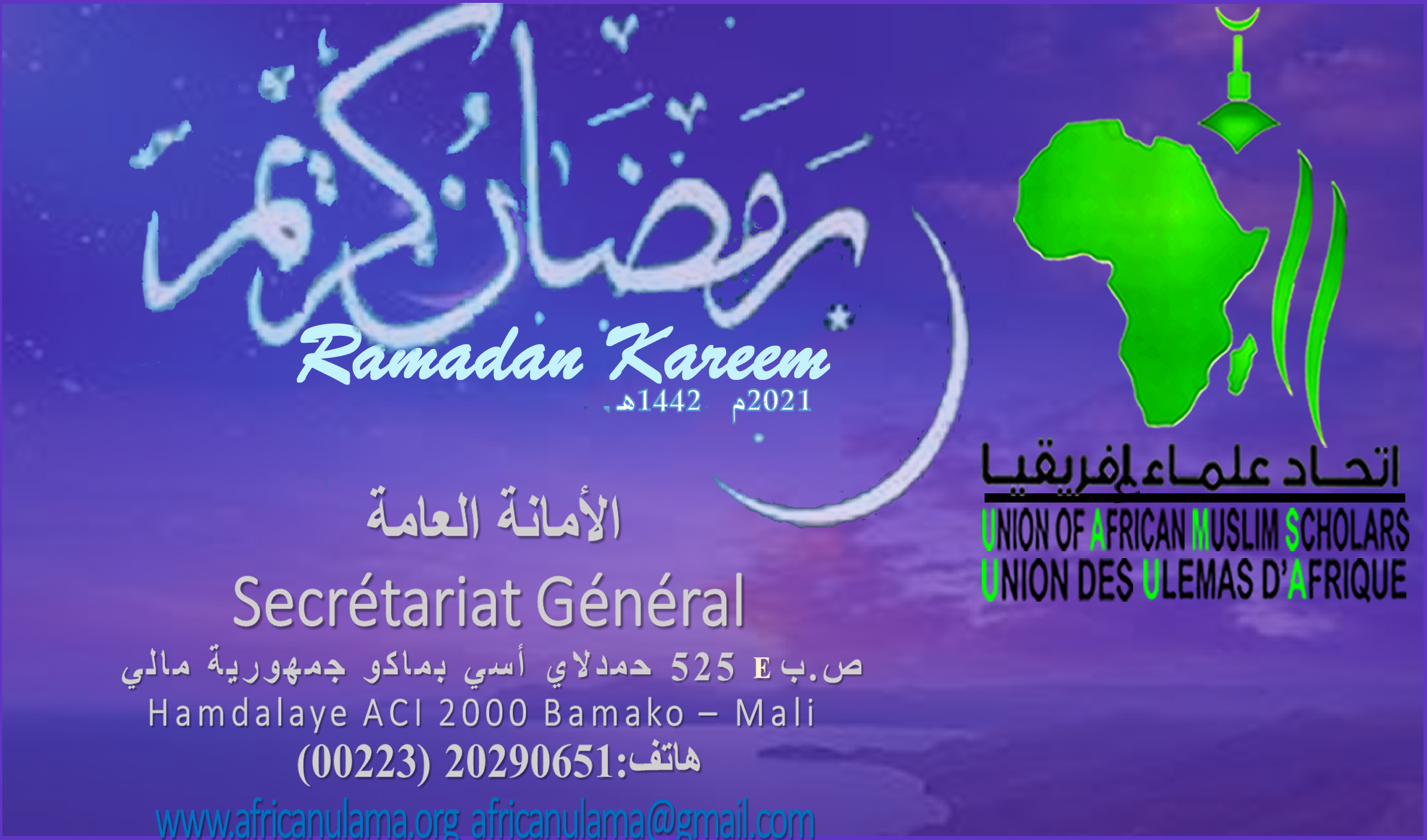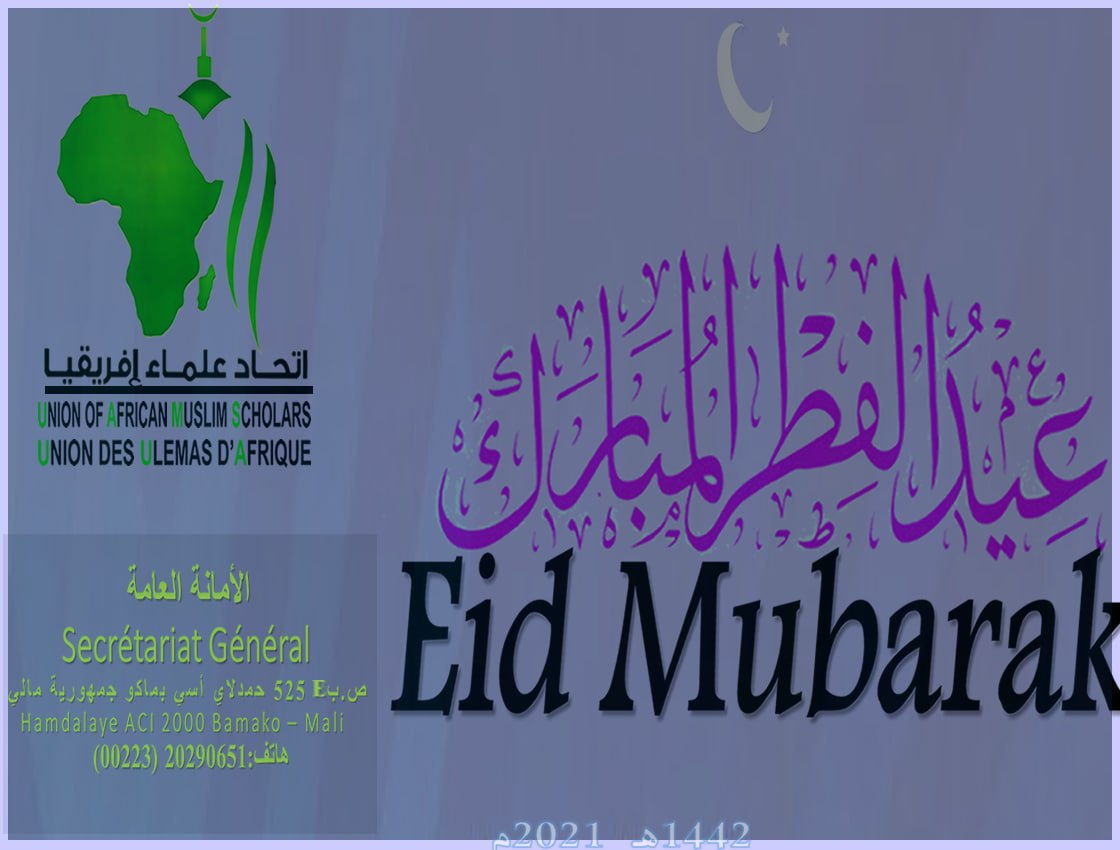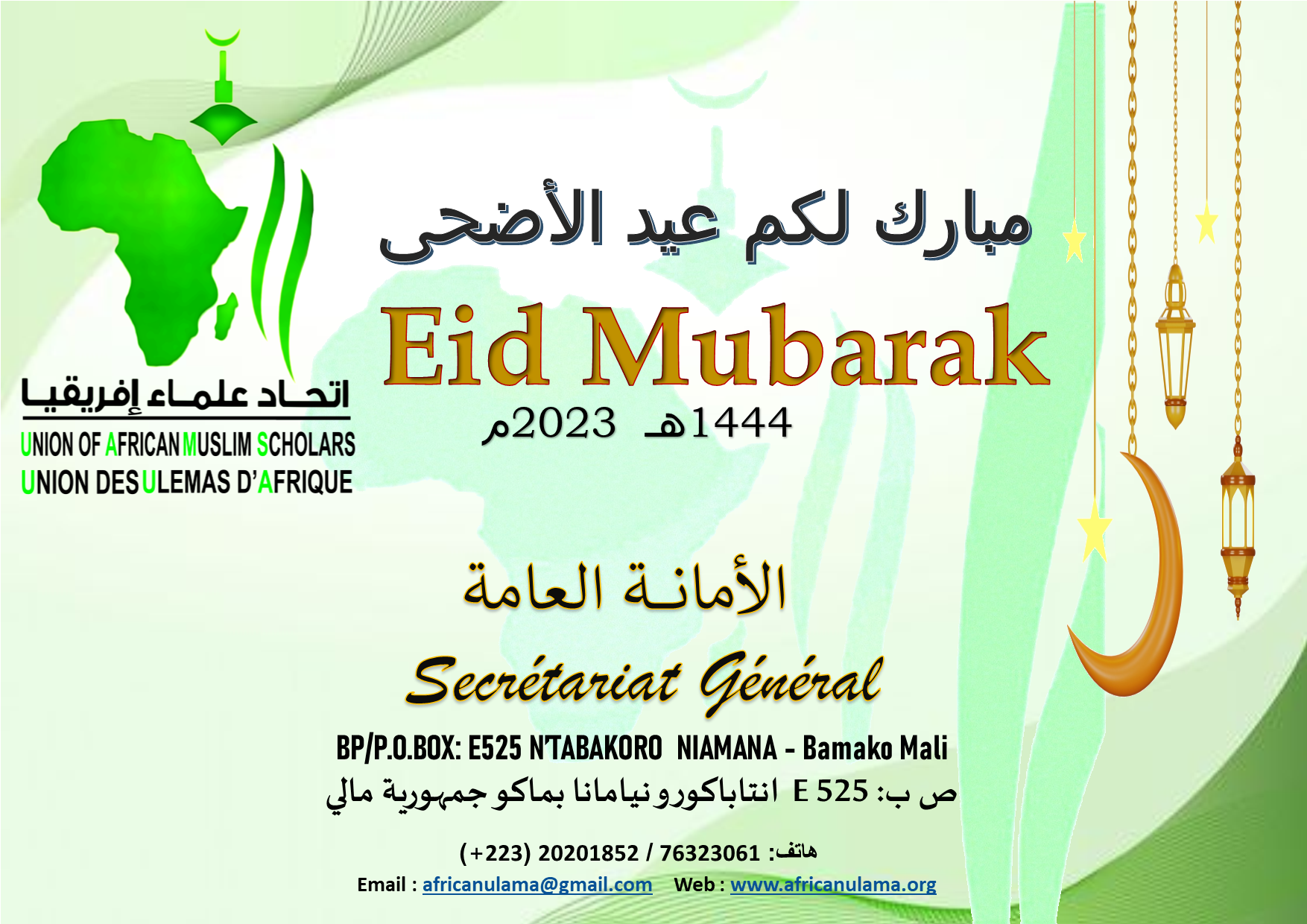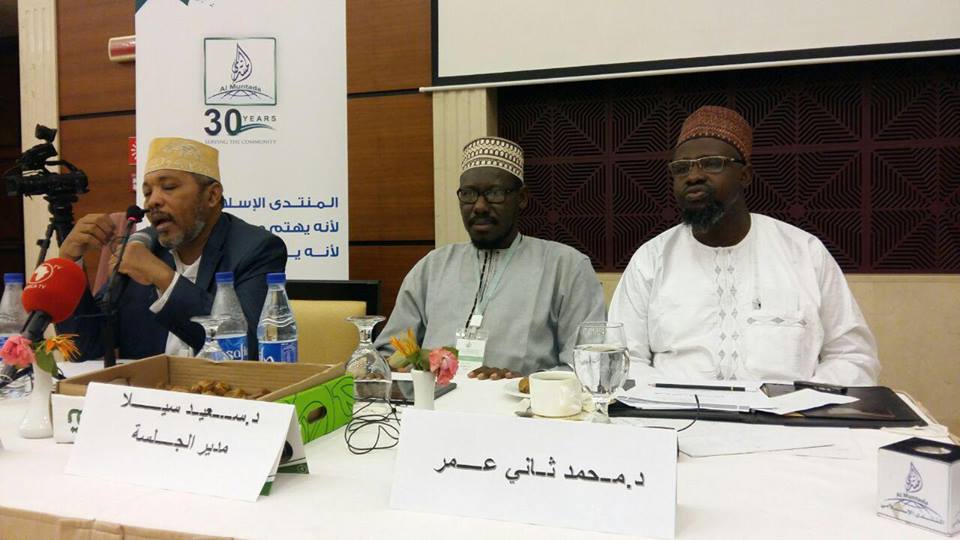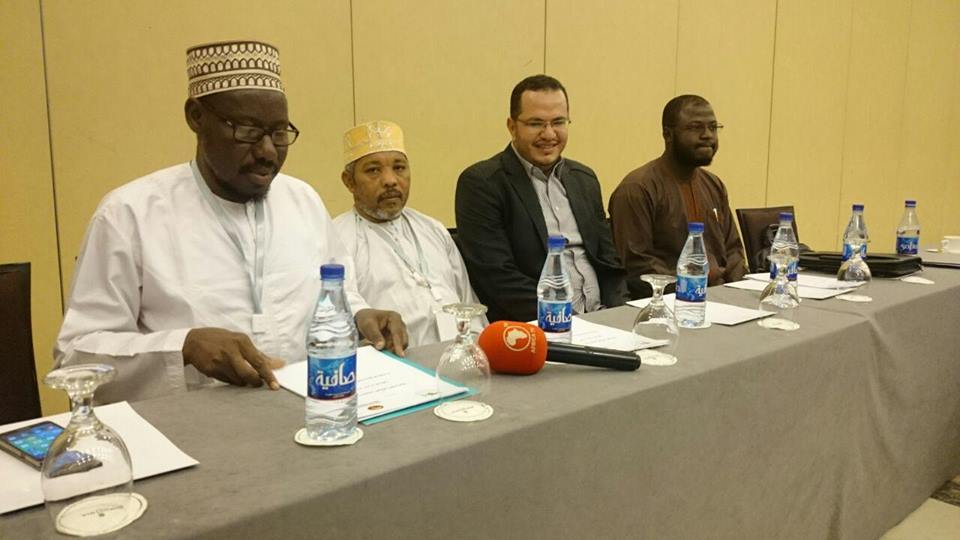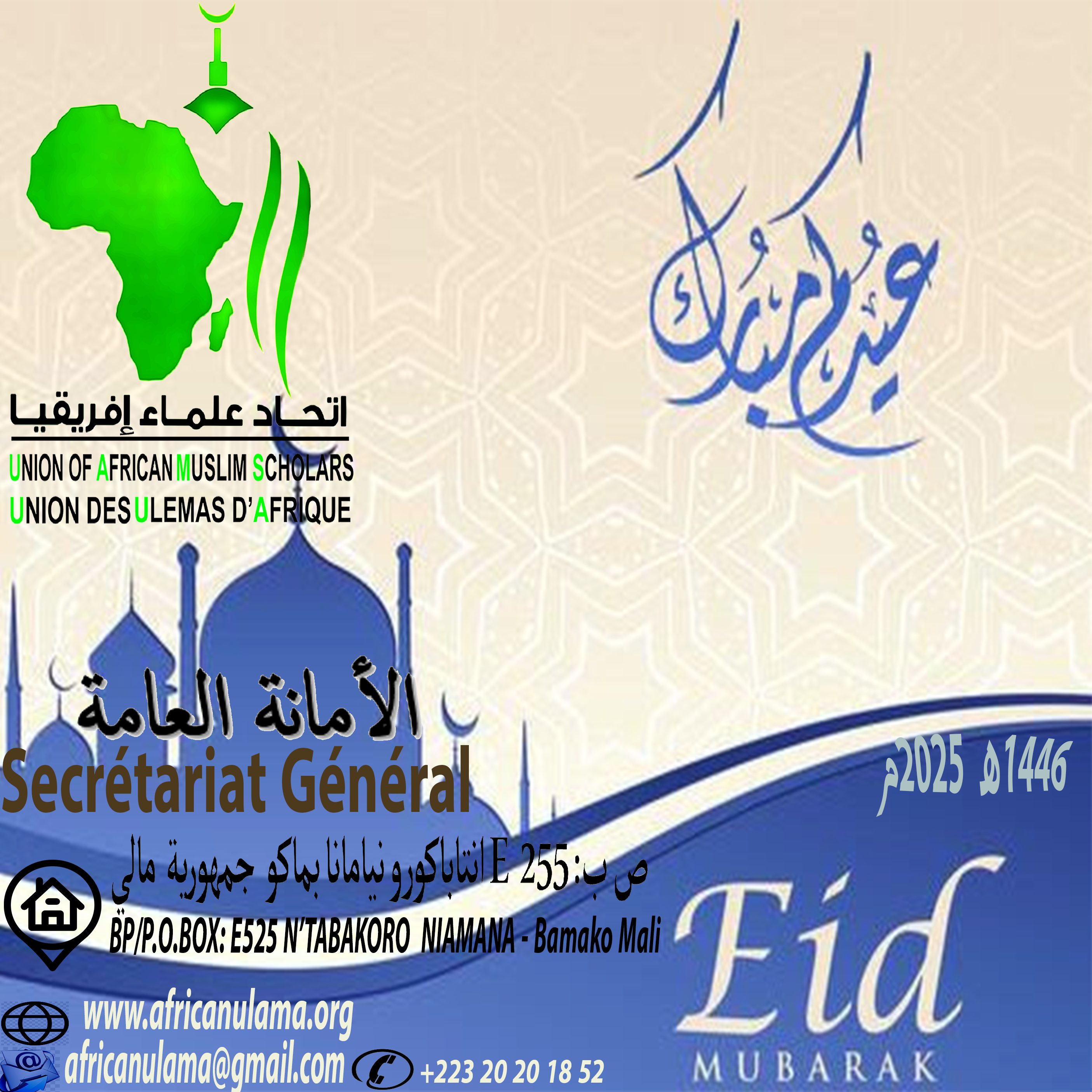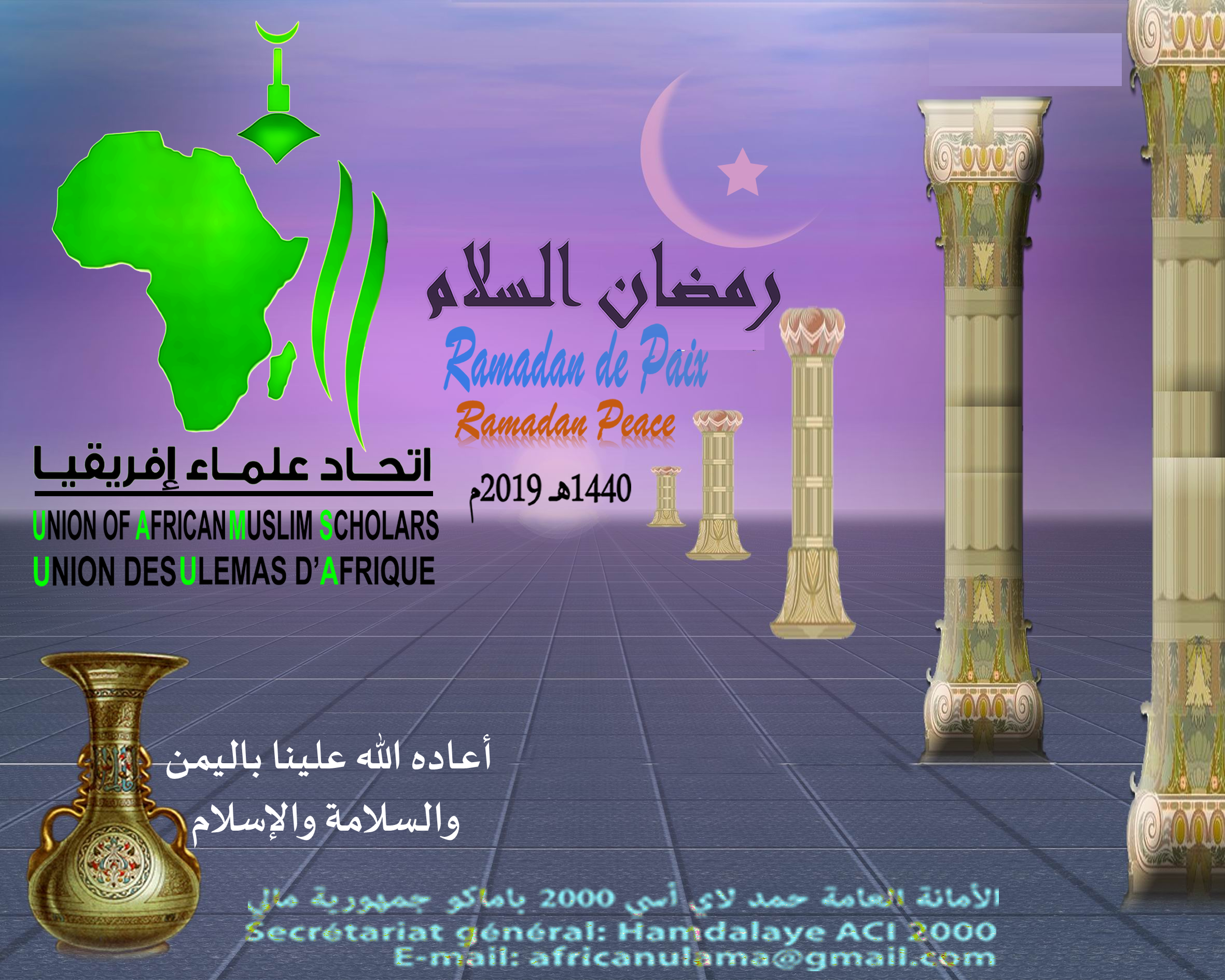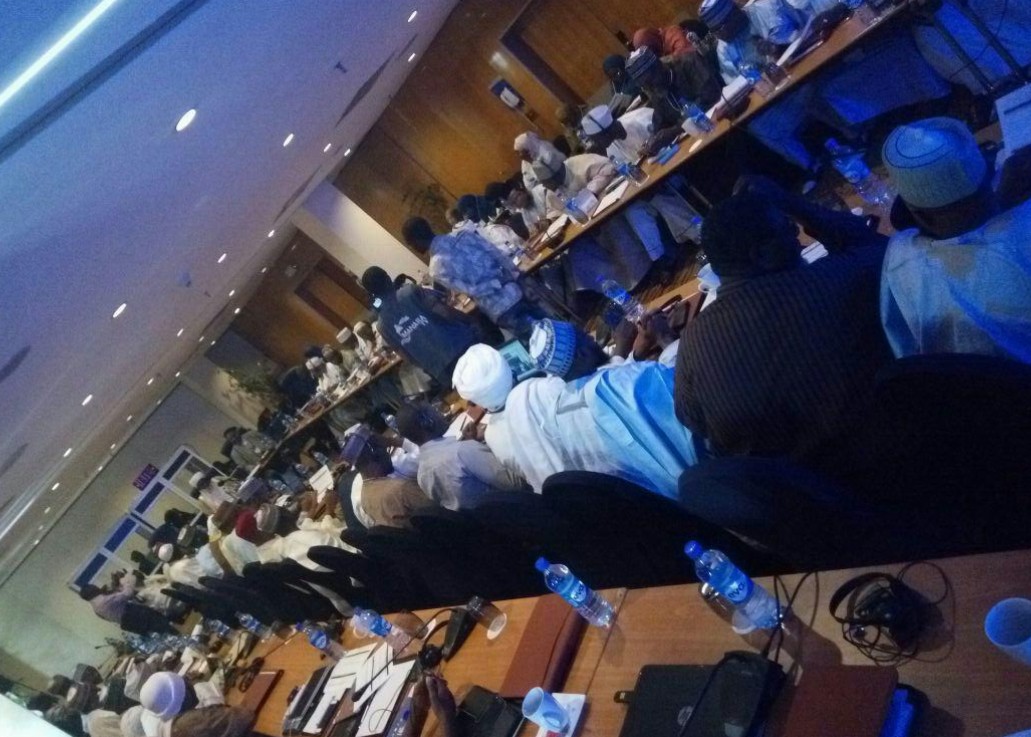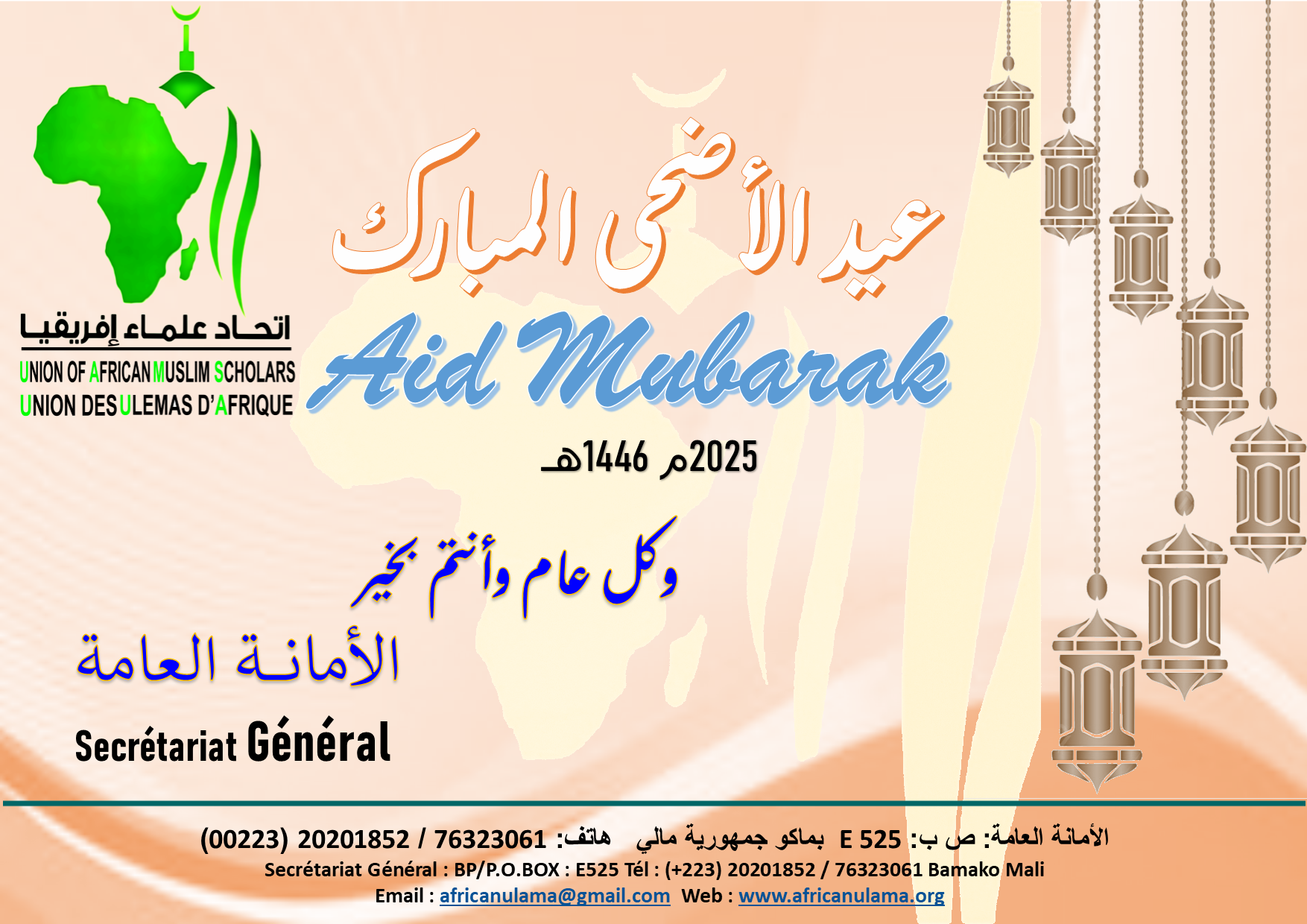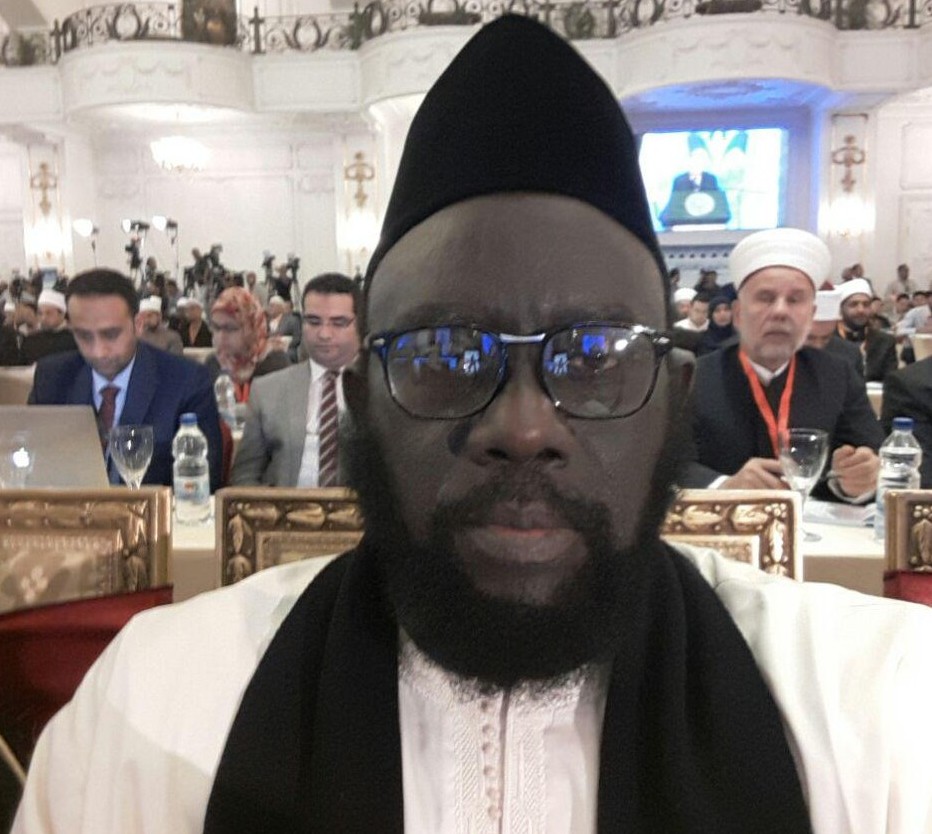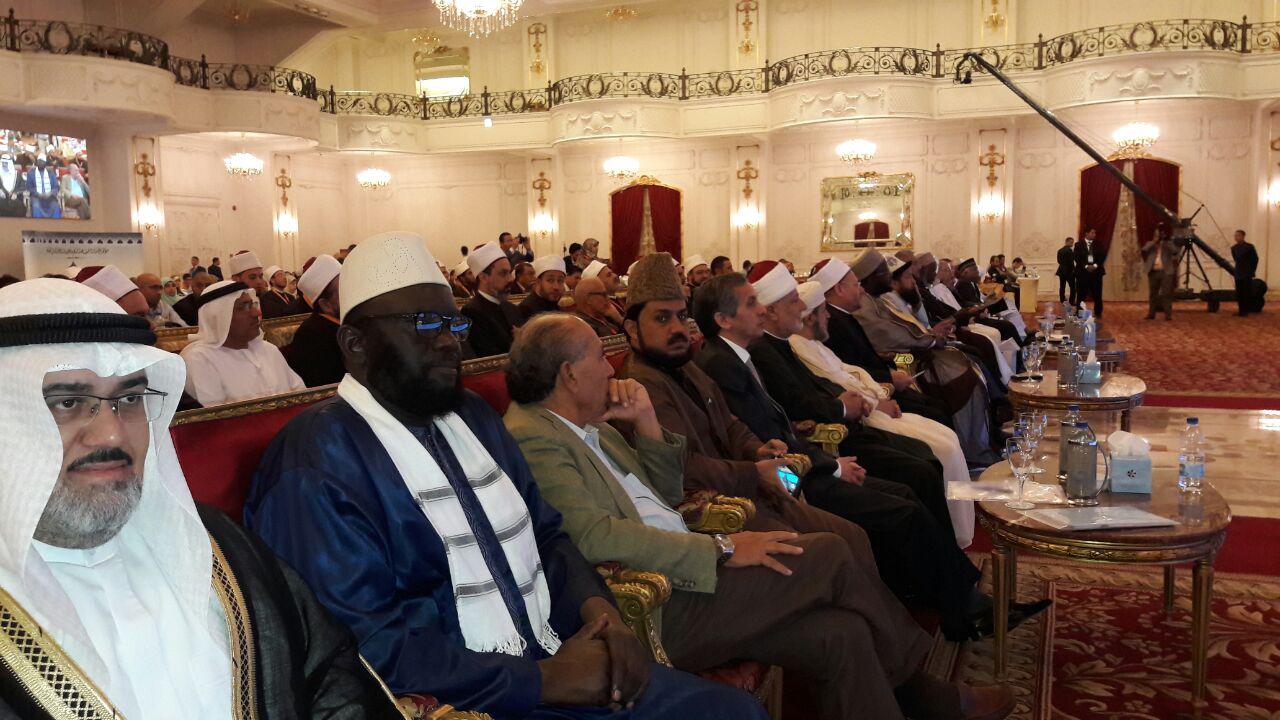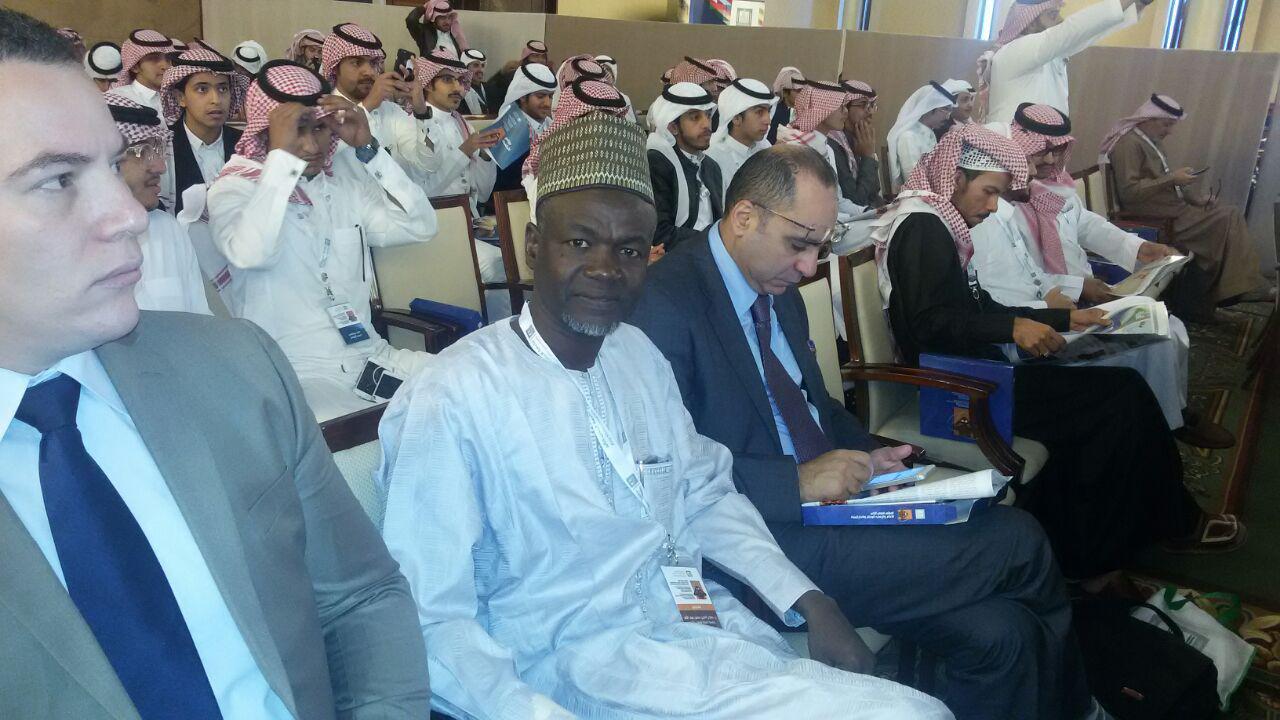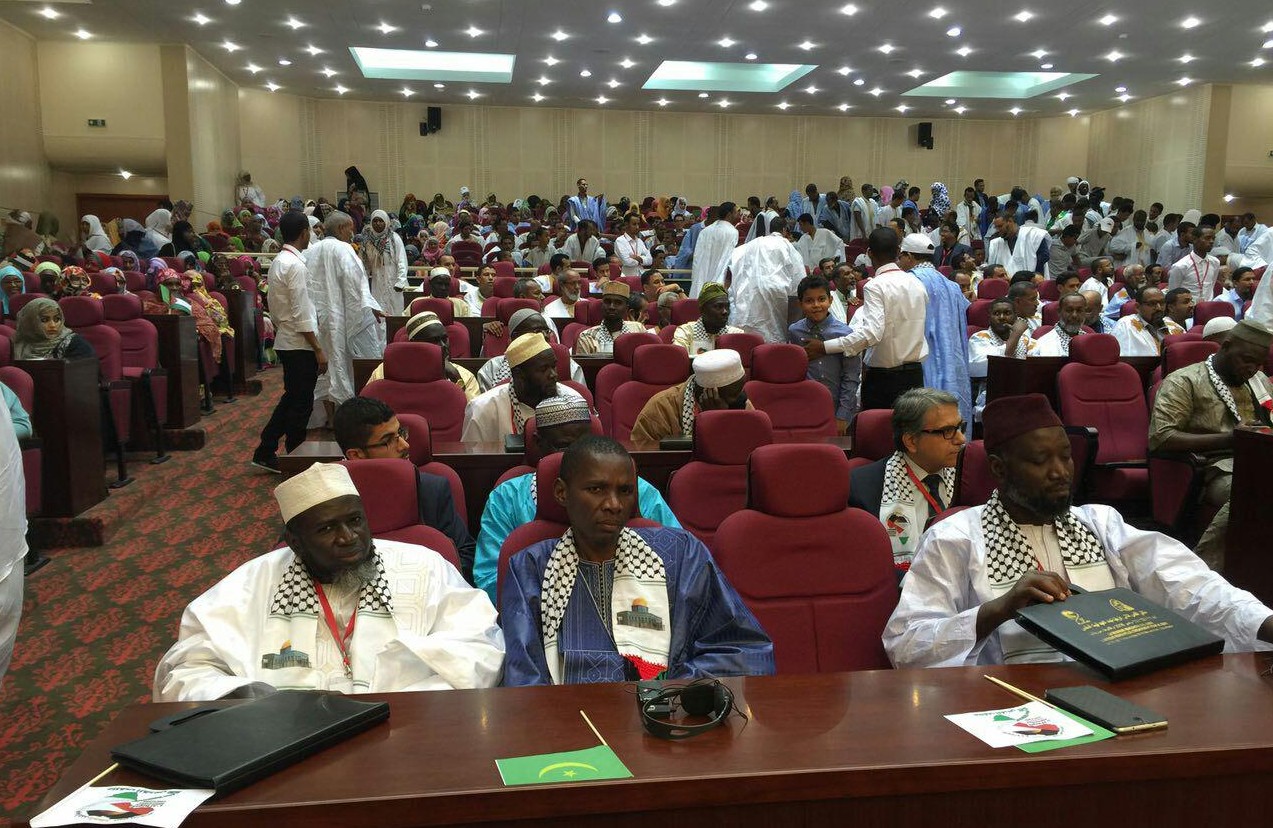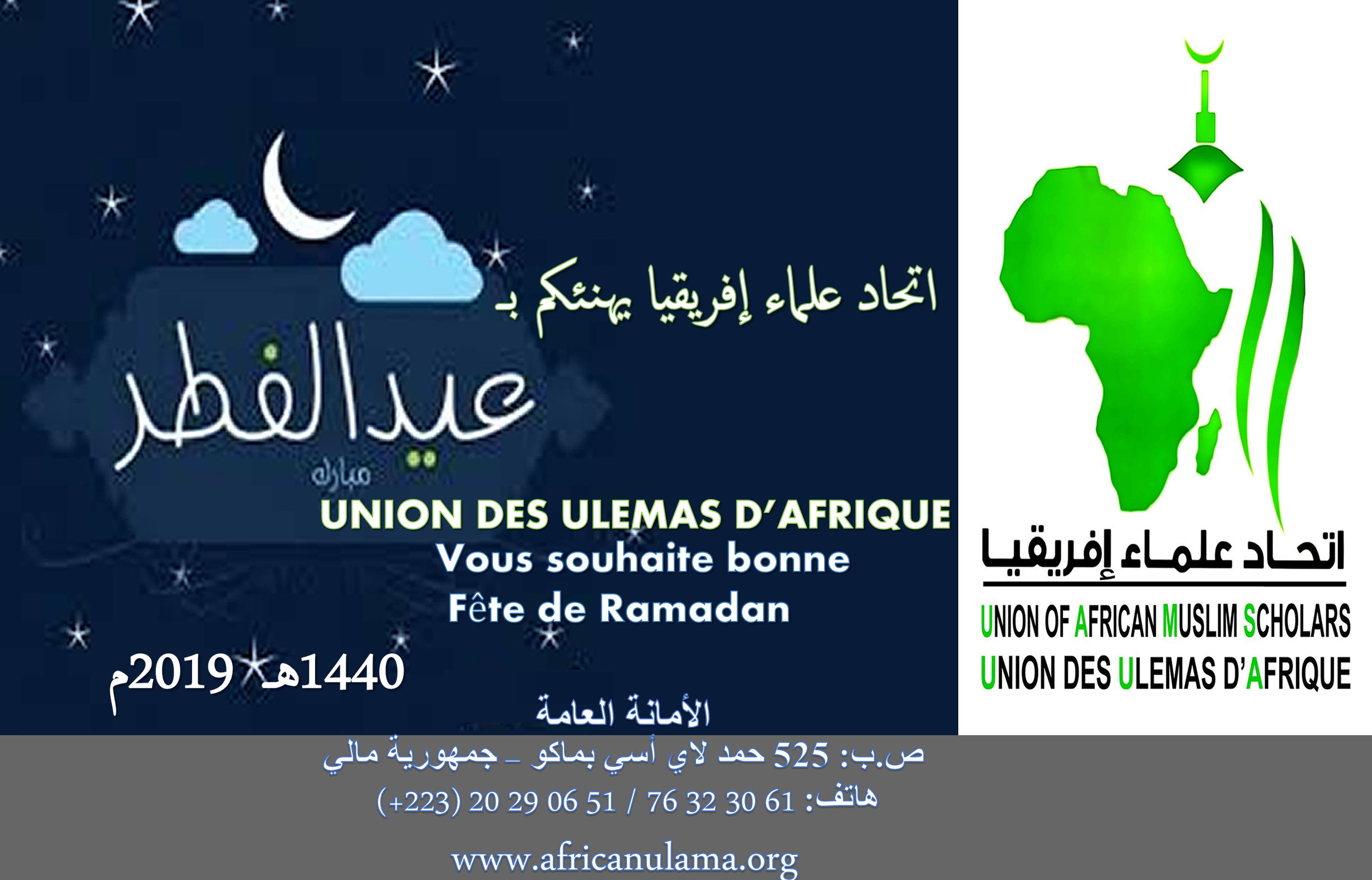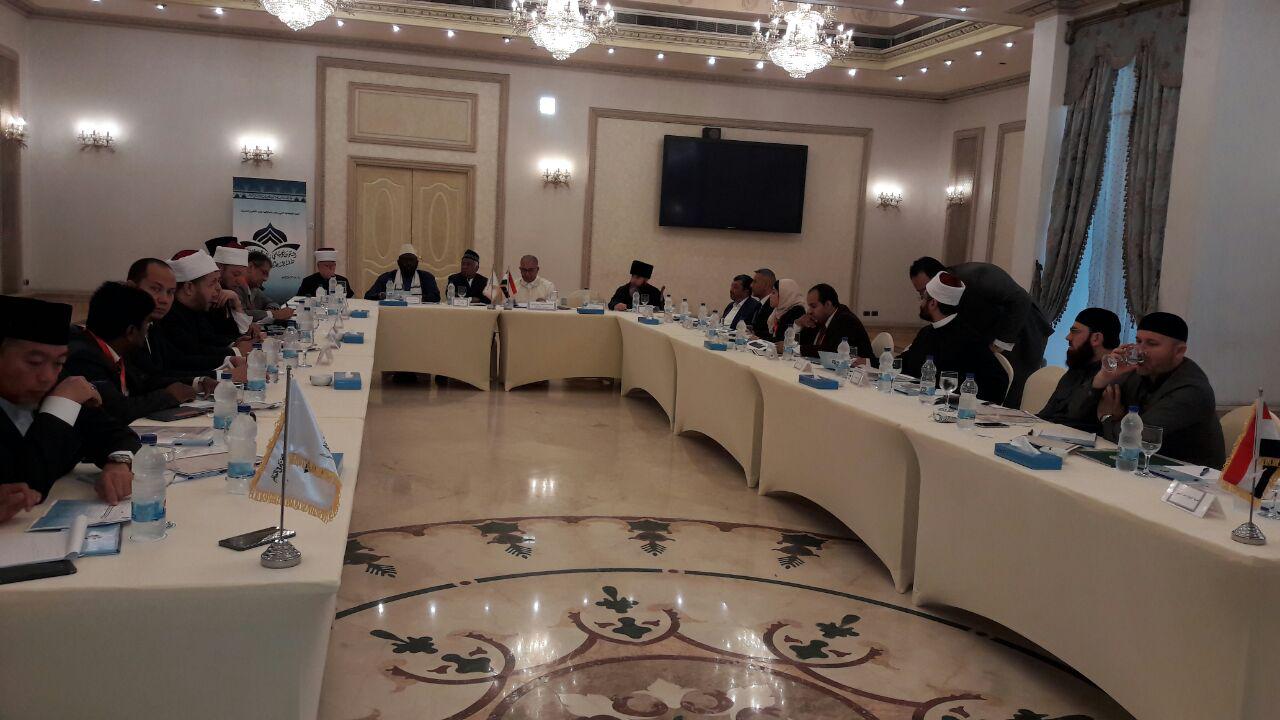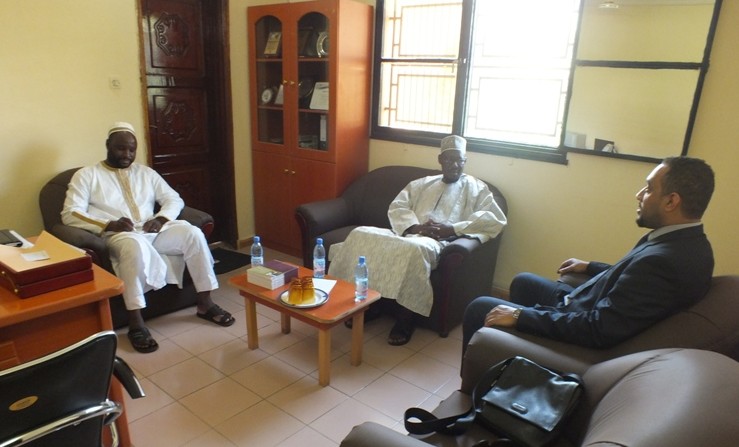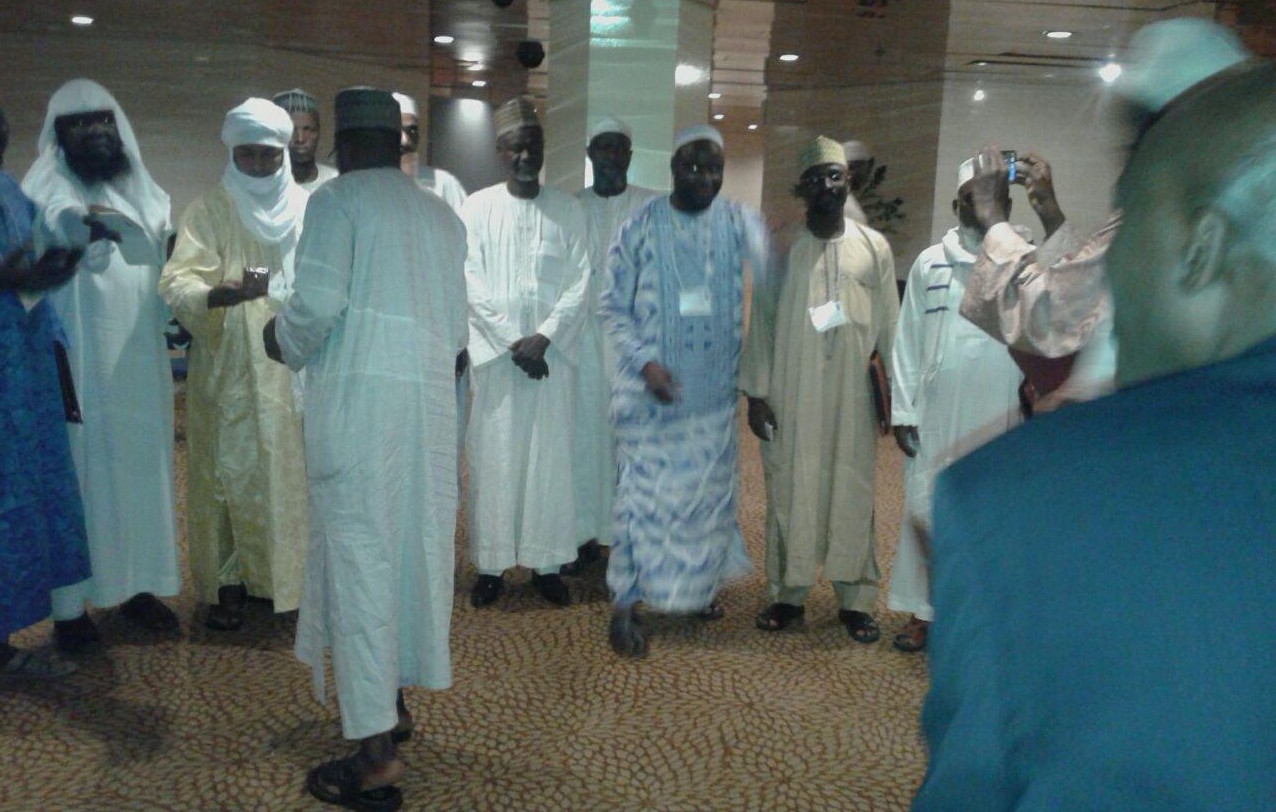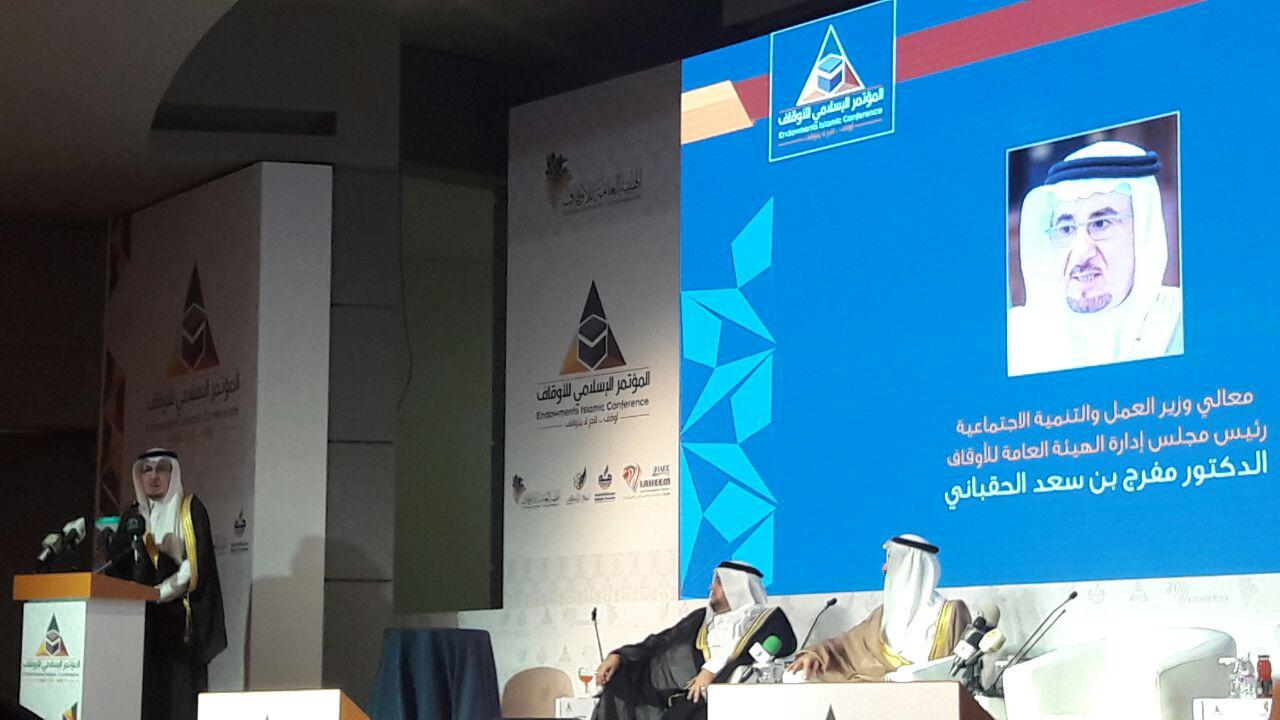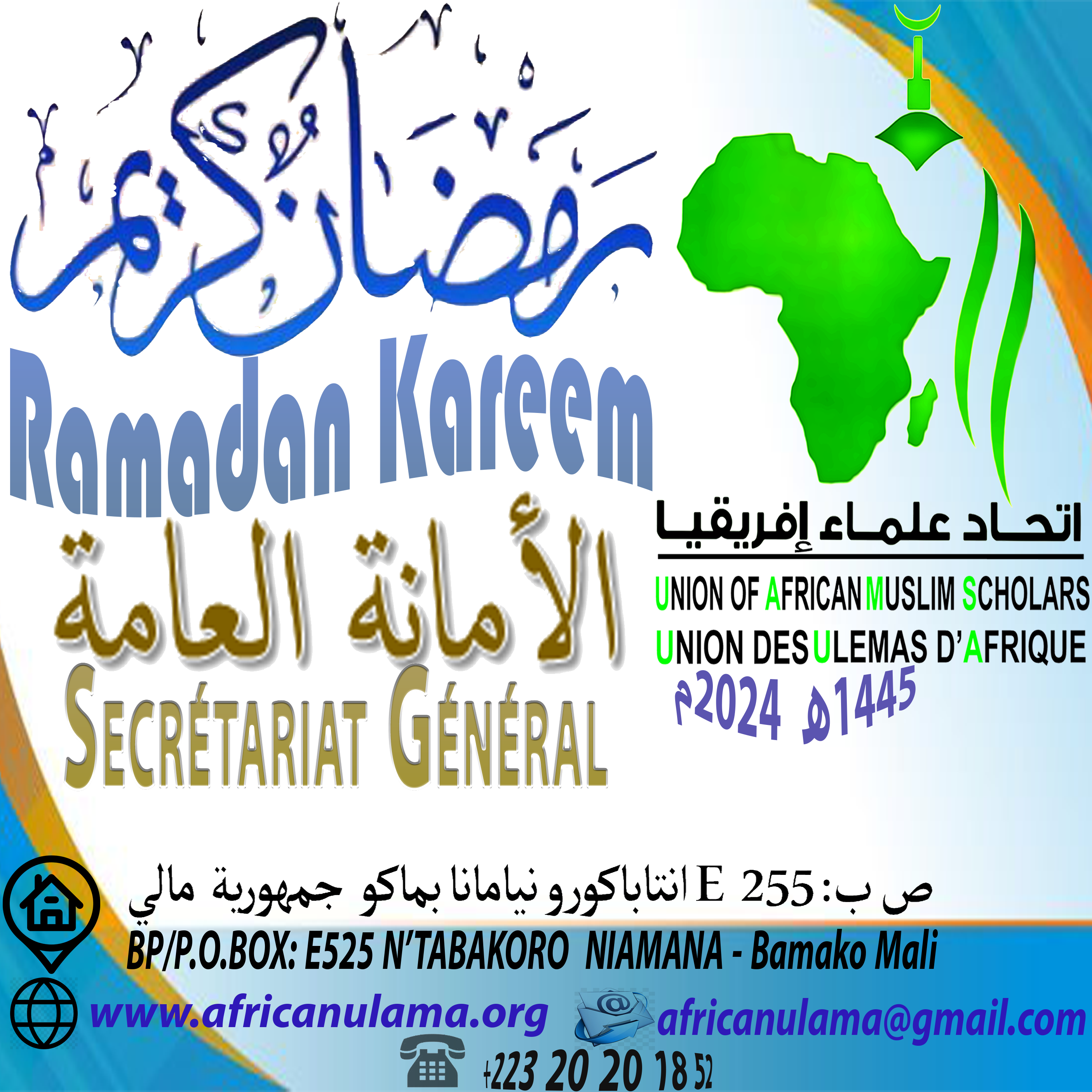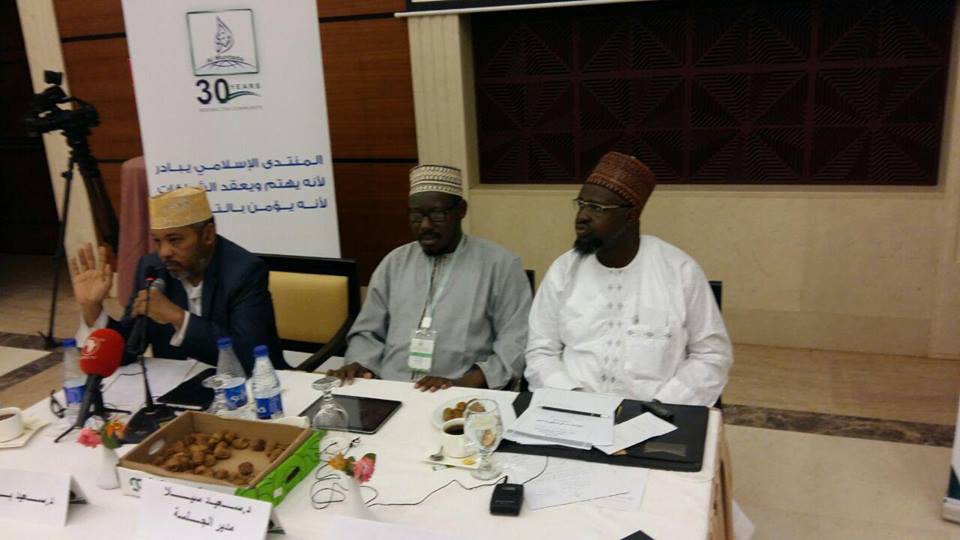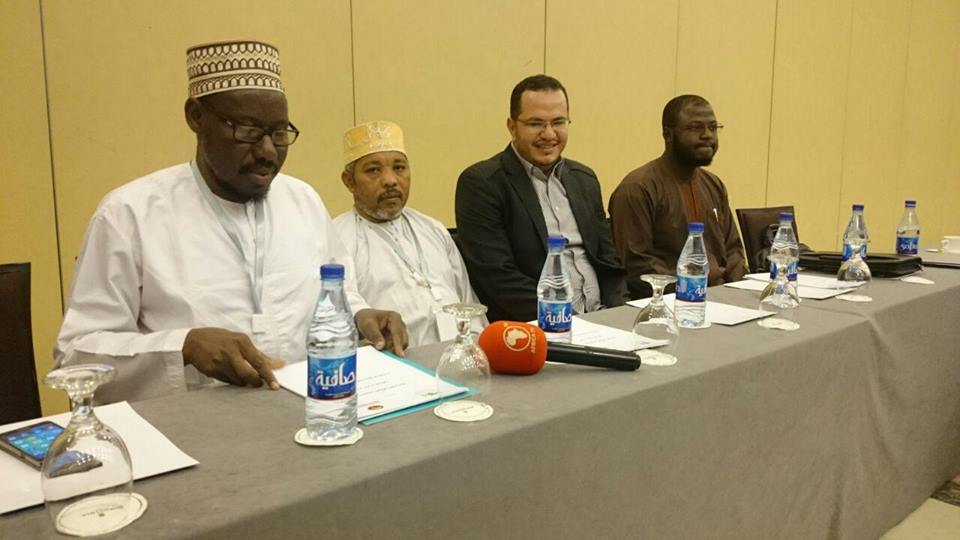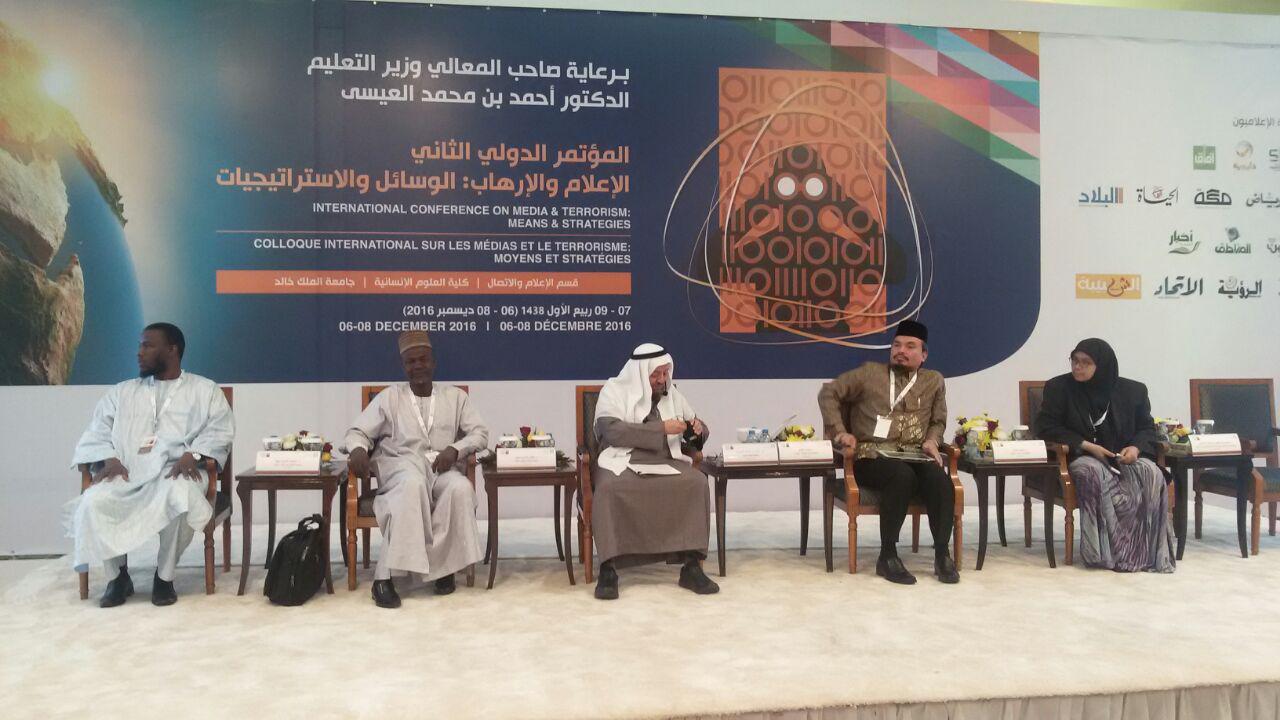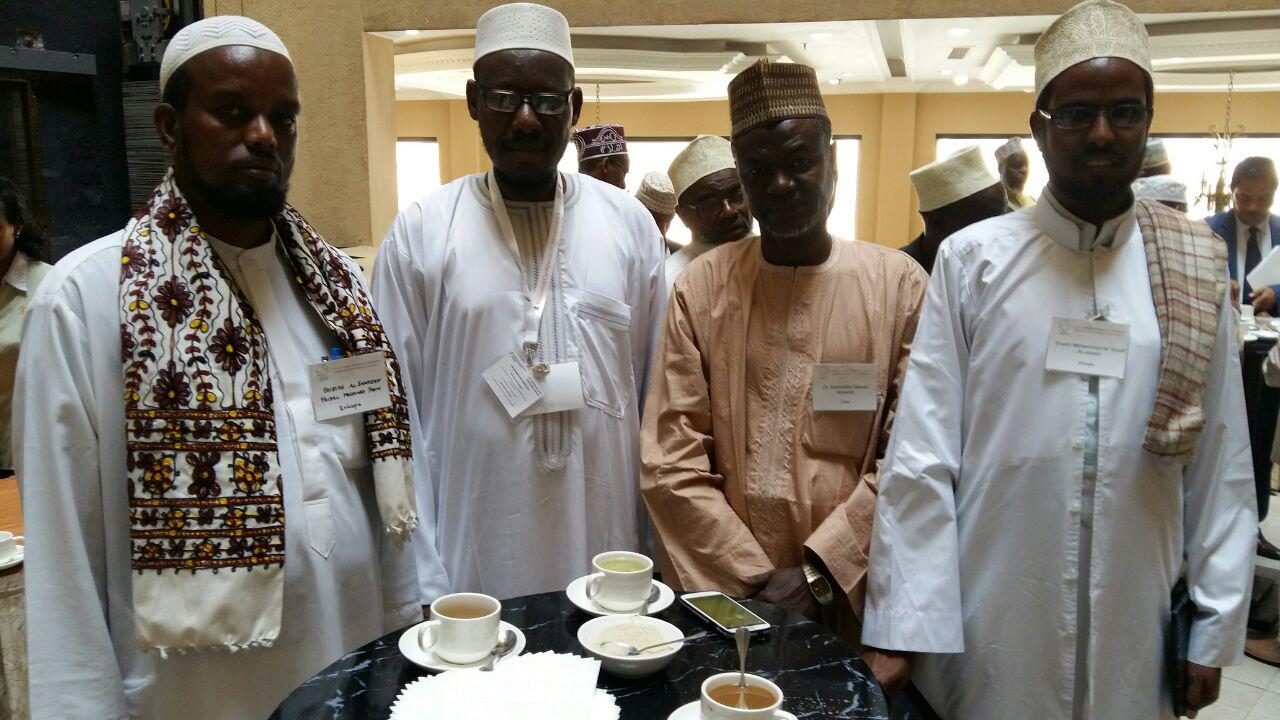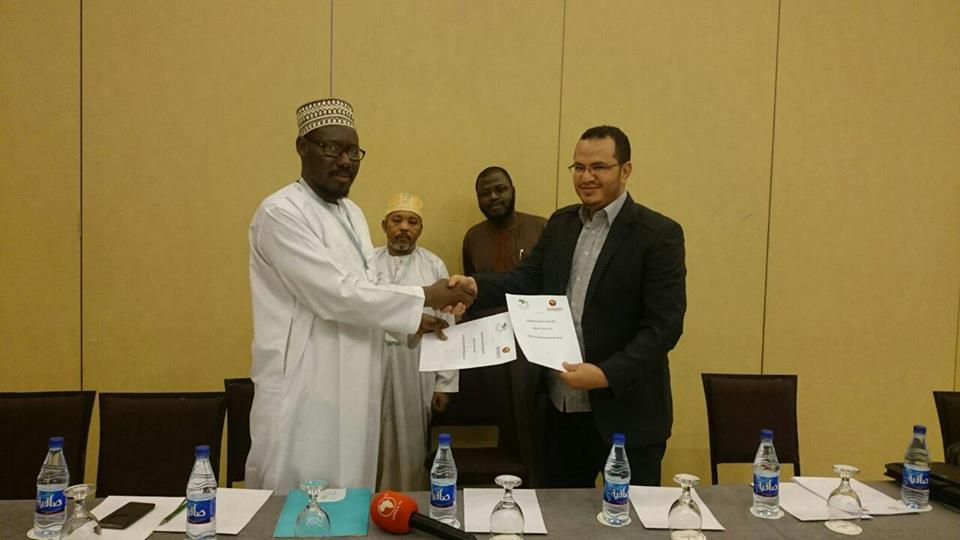In the Name of Allah the Beneficent the Merciful
The Fundamental System of the Union of African Scholars
Or
A Hand book on the Union of African Scholars
Introduction
The thought of establishing a union for African scholars south of the Sahara has since engaged the minds of African intellectuals. This idea was often debated amongst scholars in local and international gatherings. Consequently, with the passage of time, the dedication and relentless efforts of the scholars led to the founding of this grand project now known as the Union of African Scholars.
Chapter One
Establishment and Definition
Item One:
- In accordance with Qur’an 3:81, 21: 92 and the Prophetic tradition which respectively state that:
(a) Allah witnesses that there is no deity except Him and (so do) the angels and those of knowledge- (that He is) maintaining (creation) in justice. There is no deity except Him. The Exalted in Might the Wise.
(b) Indeed this religion is one religion and I am your Lord so worship me
(c) The scholars are the hires of the Prophets
- In line with the faith and significance that is often attached to the benefits of uniting forces and efforts to achieve objectives, face challenges and mitigate risks
- In view of Global and regional events
- In line with what has been observed in terms of the need for the provision of among other things:
- A point of scientific and intellectual reference for African Muslims
- A voice that represents African Muslims on general and complex matters
- The prevention of the involvement of Muslims in either or both sides of armed conflicts
- To address the fragmentation of the efforts of missionaries and the lack of sufficient coordination among them
- To strengthen the ability of African Muslims to authenticate scientific fatwas (religious edicts).
In view of the above the Union of African Scholars was established on the 12th day of March 201.
Item Two
Definition
The Union of African Scholars is an independent Islamic body. Its members are made up of African scholars south of the Sahara
Item Three
Headquarters
The headquarters of the Union of African Scholars is currently situated in Bamako, the Republic of Mali but can be moved to any other African city with the consent of the general assembly. Local and regional branches can also be set up with the permission of the board of trustees
Item Four
Motto
The motto of the Union is the map of the Africa in green with a minaret and a crescent on top of each other.
Chapter Two
Policy Guidelines and Objectives
The Union operates within the following general policy framework:
- Using the Qur’an and the Traditions of the holy Prophet of Islam (p.b.u.h) as points of reference in understanding the path of the Imams based on moderation
- Strengthening the local dimension of the Union with a view to ensuring an effective and inclusive representation of members throughout the African continent.
- Protecting the independence of the Union from both local and foreign influences
- Establishing and maintaining a strong relationship with various Muslim communities across the continent by empowering local and regional Union members
- Adopting civil, professional and scientific minded methods in exchanging views, opinions and arriving at decisions.
- Employing pragmatic means in dealing with various organizations, official institutions and opposition groups
- Instituting media policies that can better strengthen and spread the message of the Union across the continent
- Affording equal membership opportunity to all men and women who are willing to operate within the confines of the Shariah.
Objectives
The main objectives of the Union are to:
- Provide a scientific and a professional reference point that can better coordinate the efforts of African Muslim scholars and missionaries across the continent
- Provide a Muslim voice that can represent the Muslim at the local, national and international levels
- Reinforce the efforts of African scholars in providing spiritual guidance and leadership to their communities
- Strengthen peaceful co existence among African communities
- Regulate Fatwas (religious edicts) on general matters
- Open channels of communications and interactions with other Islamic organizations to better serve the Muslim Ummah
Item Seven
Action Plan
To achieve the objectives it has set for itself the Union intends to employ all legal and lawful means including the following
- Coordinate the educational, moral and missionary activities of African scholars
- Set up and fund local and regional educational, moral and missionary projects
- Make public pronouncements on important local and national matters
- Provide the general public with professional counseling services on request
- Work hard to resolve in a timely fashion any and all conflicts in which a Muslim is involved
- Issue Fatwas (religious edicts) on matters of general concern
- Strengthen the role of the mosque in the community and empower its leaders
- Organize on a regular basis educational and missionary conferences, meetings and symposia
- Organize workshops and training seminars for capacity building and development
- Create an Islamic database to facilitate necessary research
- Conduct pertinent surveys and research for publication
- Create and produce multilingual audio visual materials for local, national and regional consumption.
- Set up and employ all forms of media to get the message of the Union out
Chapter Three
Item Eight
Membership of the Union
Membership of the Union is open to all scholars within the African continent. Thus far, the Union has registered a total of two hundred and twenty four (224) members from forty two (42) African nations.
Item Nine
Membership Criteria
To become a member of the Union of African scholars, applicants must:
- Have adequate knowledge of the Shai’ah and his immediate surroundings
- Be influential in his community
- Be of sound moral character
Item Ten
Membership Criteria for non Founding Members
To become a non founding member of the Union of African Scholars, applicants must
- Apply for membership to the Secretary General of the Union
- Produce letters of recommendation from at least two founding members
- Get the approval of the Membership Committee
- Secure the consent of the General Secretariat
Item Eleven
Membership by Nomination
- It is permissible for members of the Membership Committee to nominate aspirants for membership into the Union
Item Twelve
Membership Criteria for Representatives of Charity Organizations
- It is permissible for Charity Organizations to apply for membership into the Union for any of their representatives that meets the afore mentioned membership criteria of the Union
Item 13
Types of Membership
There are four types of membership into the Union of African Scholars as follows:
- Founding membership: This title is conferred on those who joined the Union before its inaugural congress
- Ordinary membership: This title is conferred on those who joined the Union after its inaugural congress
- Observer membership: This title is conferred on important personalities, leaders of educational institutions and Islamic organizations that have taken interest in developmental issues in Africa
- Honorary membership: This title is conferred on people who have distinguished themselves in the service of humanity in Africa.
Item 14
Tenure of Membership
Membership of the Union is for life except in cases of resignation, death or explosion after a unanimous decision by the General Secretariat and the approval by the General Assembly.
Chapter Four
The Organizational Structure of the Union
The organizational structure of the Union is made up of a Supreme and an Executive Council respectively.
Item 15
The Supreme Council
The Supreme Council of the Union of African Scholars comprises the following bodies:
- The General Assembly
- The General Congress
- The Council of Secretaries
The Executive Bodies
- The Presidency
- The General Secretariat
- The Permanent Technical and Scientific Committee
Item 16
Chapter Five
The Powers of the General Assembly
The General Assembly of the Union is its highest decision making body and comprises all the members mentioned in sections (a) and (b) of Item 13 of this document
Item 17
The General Assembly reserves the right to appoint local and regional Union members to Congress
Item 18
The General Assembly reserves the right to dissolve the Union with a one third majority vote. The vote must however be verified by the Council of Secretaries
Item 19
The General Congress
The General Congress is the highest decision making body in charge of formulating policy guidelines and strategies for the Union. The Congress convenes once every five years. In exceptional circumstances however, a two third majority vote or a summon by the presidency or Council of Secretaries would be necessary for it to convene
Item 20
Tenure of the General Congress
The General Congress of the Union has a five – year tenure of office and so do all other bodies appointed by Congress including the Presidency, the Council of Secretaries and the General Secretariat
Item 21
Composition of the General Congress
The General Congress of the Union is made of the members of the following bodies:
- The Presidency, Council of Secretaries, General Secretariat and Permanent Committees
- One representative from each African country with Union membership
- All invited honorary and observer members
Item 22
Resolutions of the Congress
The General Congress makes its decisions based on a simple majority vote. Should Congress want to amend a fundamental principle of the Union, it will need a two third majority to do so. In case of a tie the president’s vote should break the tie.
Item 23
Powers and Privileges of the General Congress
The General Congress of the Union is vested with the following powers and privileges
- To formulate general Union policy guidelines
- To pass and amend Union laws
- To elect and impeach the president, vice president, Secretary General, deputy Secretary General, Council of Secretaries and members of the permanent Committees of the Union
- To ratify general reports and the five year working plan
- To toe Union line on general matters
Item 24
The Council of Secretaries
The Council of Secretaries is responsible for the implementation of the policies and decisions of the General Congress and it is made up of the following members:
- The President of the Union and his four deputies
- The General Secretary, his deputy and his five assistants
- The heads of all permanent Committees
- Any six Union members appointed by the General Congress from across the continent
Item 25
The Composition of the Council of Secretaries
The Council of Secretaries of the Union comprises the following members:
- The president
- The vice president
- The first secretary
- The deputy secretary
- The general membership of the Council
Item 26
Separation of powers
In order to ensure the separation of powers and prevent the overlapping of duties; no member of the presidency and the General Secretariat is allowed to be secretary general of the Union
Item 27
Sittings of the Council of Secretaries
The Council of Secretaries sits once every six months. In exceptional circumstances however, the president or the secretary general of the Union can ask them to convene.
Item 28
Powers and Privileges of the Council of the Secretaries
The Council of the Secretaries enjoys the following powers and privileges:
- To approve and balance internal budgets and ratify the annual decisions of the General Secretariat
- To monitor the activities of the executive bodies of the Union
- To give final approval to all agreements and collaborations between the Union and other organizations
- To establish and approve of local and regional branches and to set up temporal committees to undertake necessary short term projects
- To appoint temporal officers to assist in the execution of the duties of the executive bodies for the duration of the Congress
- To ensure that new members are only allowed to join the Union after the approval of the Membership Council
Item 29
The Presidency
The presidency is the final reference point of the executive bodies and it comprises the following:
- The president
- The vice president from West Africa
- The vice president from Central Africa
- The vice president from East Africa and
- The vice president from Southern Africa
Item 30
Functions of the Presidency
The presidency has the following as its main duties and responsibilities:
- To represent the Union and explain its positions on general matters
- To supervise the activities of the General Secretariat and the Technical Committees
- To chair all executive and temporal technical committee meetings in which they are present
- To head the Fatwa Committee
- To sign the reports and documents submitted to the General Assembly
- To invite personalities to the General Assembly
Item 31
Reports
- A copy of all the reports and decisions of the General Assembly and the Council of Secretaries and the Committees shall be submitted to the Presidency
Item 32
The General Secretariat
The General Secretariat serves as the official mouth piece of the Union and as the main executor of its policies. It comprises the following:
- The Secretary General
- Assistant Secretary General
- Assistant Secretary General (Legal and Administrative Affairs)
- Assistant Secretary General (Finance)
- Assistant Secretary General (Public Relations)
- Assistant Secretary General (Women Affairs)
Item 32
Staff Appointment
The Secretary General can employ necessary staff members to facilitate the smooth running of administrative business with the approval of the Council of Secretaries.
Item 33
Staff Code of Conduct
Members of staff of the General Secretariat are bound by the rules and regulations of the host country
Item 34
Functions of the General Secretariat
The following are the duties and responsibilities of the General Secretariat
- To execute the orders and recommendations of the General Assembly and the Council of Secretaries, and submit periodical reports on its activities to the presidency
- To conclude agreements and submit them to the Council of Secretaries for approval
- To conduct the Union’s daily administrative duties and supervise the activities of both permanent and temporal committees in the discharge of their duties.
- To prepare and submit for approval to the Council of Secretaries annual budgets and developmental programmes consistent e with the Union’s five year developmental plan
- To prepare a final annual report on the activities of all executive bodies and committees of the Union
- To prepare venues for all Union meetings and assemblies
Item 35
Permanent Committees
The following represent the permanent committees of the Union
- Planning and supervision
- Research and translation
- Fatwas (religious edicts) and guidance
- Information and public relation
- Finance
- Education
- Dialogue and charitable activities
Item 36
Composition of permanent Committee members
Each of the above mentioned committees is made up of a chairman, a vice chairman, a secretary and five members at most.
Item 37
Sources of Finance
The Union will work very hard to raise the necessary funds that will enable it implement its plans and fulfill its objectives. Accordingly the Union will source funds from the following:
- Annual contributions by members (to be determined by the Council of Secretaries)
- Donations, trusts and wills
- Publications and Research
- Other legal and lawful sources
Item 38
Chapter Seven
Miscellaneous
- All members of the Union are to abide by its rules and regulations. They must also respect the laws of the land where they are operating from.
- With the exception of the General Assembly meeting, members of the various bodies of the Union can organize meetings via web cam or teleconference.
- It is permissible to use both the Gregorian and lunar calendars
- Membership to and work for the Union are voluntary except as otherwise determined by the Council of Secretaries
